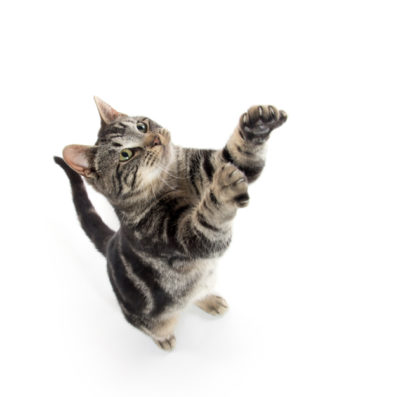Digestive Upset in Cats
Cat upset stomach, cat vomiting Digestive upsets, upset tummy and upset stomachs are common in cats and vomiting is generally more commonly seen than diarrhoea. Causes

Fortunately, most cats live largely healthy lives, with only a few minor incidences. However, some of the common conditions affecting cats include, cat flu, digestive upset in cats and arthritis in older cats.
We would recommend an annual health check with your veterinary surgeon. This is great for routine procedures such as vaccination, neutering flea treatment and worming. Also because it enables more early detection of disease and management of chronic conditions such as cat flu, cat arthritis, liver disease, skin disease, kidney failure and therefore increases the chances of a more favourable outcome. Cats are the masters of hiding illness and disease and the better prepared owners are at pre-empting times of stress or disease challenge, the less likely that serious problems will arise.
Feeding good quality food and maintaining a fresh water supply is essential. Feeding a probiotic such as PROBIO PLUS helps to maintain good intestinal health and may be particularly beneficial following courses of antibiotics or any time a cat stops eating.
Similarly, supplementation with vitamins and minerals using MULTIBOOST for Cats which also contains echinacea to support the immune system during times of stress or disease challenge is of benefit. Cats that are long haired or inclined to have poor quality hair coats will benefit from receiving SUPERCOAT for Cats.
Cat upset stomach, cat vomiting Digestive upsets, upset tummy and upset stomachs are common in cats and vomiting is generally more commonly seen than diarrhoea. Causes
Arthritis is the medical term used to describe joint inflammation. Joint inflammation can result from a variety of causes, but most commonly it is a
What is cat flu? Cat flu is extremely common in cats and is caused by a range of respiratory viruses and often complicated by secondary
Copyright © 2019 Mervue Laboratories. All Rights Reserved.